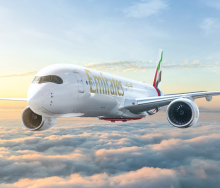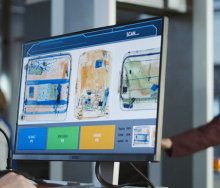The European Commission's new legislation means non-CO₂ emissions on short-haul flights will be tracked. However, the exemption of non-CO₂ tracking on long-haul flights has caused controversy and suspicion among carriers.
The exemption follows lobbying by airlines operating long-haul flights in and out of Europe, which was backed by IATA, reports simpleflying.com.
The term ‘non-CO₂ emissions’ refers to pollutants including nitrous oxide, water vapour, soot, carbon monoxide, unburned hydrocarbons, aerosols, hydroxyl compounds and sulphur oxides, according to IATA.
The new legislation, under the EU's non-CO₂ Monitoring, Reporting and Verification (MRV) system, will require short-haul airlines in Europe to track and collect data on non-CO₂ emissions along with their CO₂ emissions, starting January 2025.
From 2027 onwards, long-haul airlines will also be required to disclose their emissions on services touching the European Economic Area.
Airlines and aviation authorities fear that the non-CO₂ emission data will be used to set additional emissions caps and introduce new types of emissions shares on the EU's Emissions Trading System (ETS).
The EU-ETS is part of an emissions capping system that allows corporations to buy, sell and trade additional emission allowances when they exceed the emissions caps. Currently, ETS only has caps on CO₂, nitrous oxide and perfluorocarbons (created during the production of aluminium).
IATA criticised the implications of the MRV, saying: “The EU ETS legal text indicates the possibility of expanding its scope to include non-CO₂ effects as a mitigative measure. Taking mitigative action based on estimations rather than observations risks being ineffective and potentially counterproductive."














